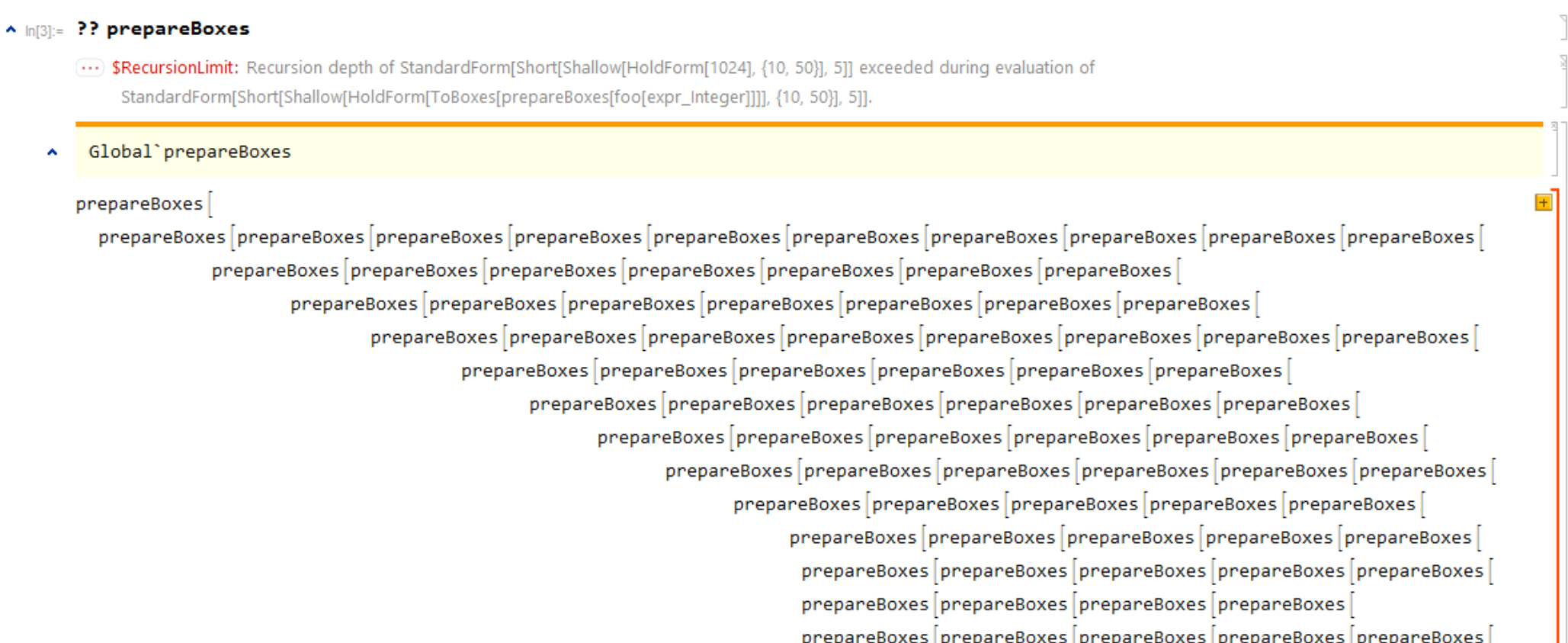Consider the following toy example:
prepareBoxes[foo[expr_]] :=
message["The argument was " <> ToString@expr];
MakeBoxes[foo[expr_], StandardForm] := ToBoxes@prepareBoxes@foo[expr]
Evaluating foo[2] then gives the expected result:
foo[2]
(* message["The argument was 2"] *)
But if I want to review the definition of foo with Information I get the following:
Notice how the custom MakeBoxes gets evaluated on the LHS of the definition of prepareBoxes.
This is weird enough, and arguably not the wanted result, but it may still be fine.
The problem arises if the definition of prepareBoxes is slightly different:
prepareBoxes[foo[expr_Integer]] :=
message["The argument was " <> ToString@expr];
MakeBoxes[foo[expr_], StandardForm] := ToBoxes@prepareBoxes@foo[expr]
where I just changed the definition of prepareBoxes to only trigger when the input is an Integer.
Evaluating Information on prepareBoxes with this definition we get an infinite recursion, for the same reason we got the wrong evaluation in the case above:
Is this behaviour considerable as a feature? It can be quite annoying in many occasions.
Is it avoidable? If so, how?


